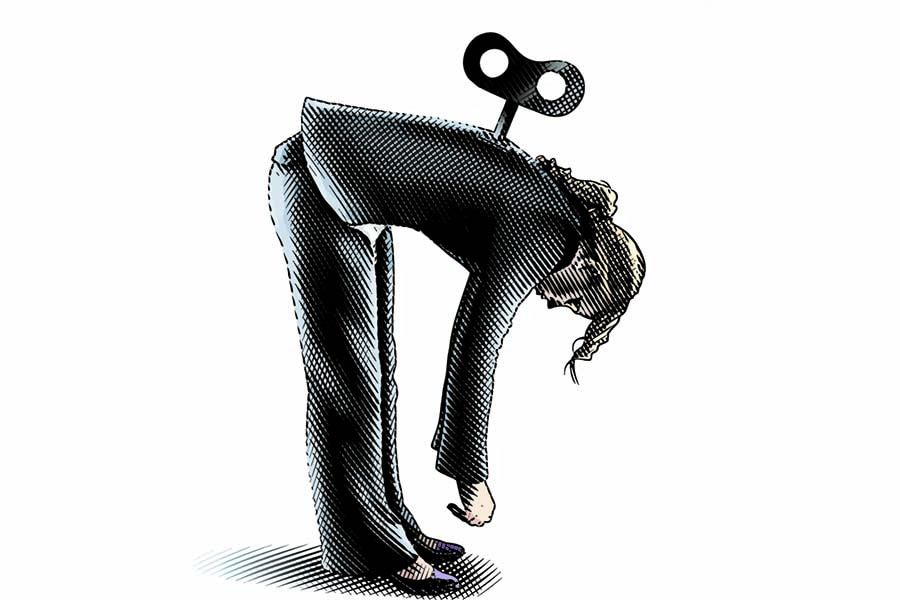Any organization’s most valuable asset is its employees. This fundamental fact can often be overshadowed by concerns over financial management, ticket sales, contributed income, and the like. But if theatre managers and boards were to consistently keep this maxim at the core of their day-to-day operations, and took steps to ensure that their staff is made of happy and healthy human beings, other organizational challenges would be that much easier to face.
This isn’t just about compensation, or hours, or work/life balance, but about having a well-thought-out approach to human resources—whether or not your organization can even afford to have an HR department or professional. God bless the board member at one theatre company I worked for who insisted that the organization’s long-range plan include a goal of making it a good and supportive place to work.
It can be helpful to look outside our field for inspiration. For instance, corporate giant Johnson & Johnson, a healthcare company with an impressive focus on individual wellness, succinctly articulates this belief in its credo: “We are responsible to our employees, the men and women who work with us throughout the world. Everyone must be considered as an individual. We must respect their dignity and recognize their merit.”
J&J, which happens to be a generous supporter of theatre where its corporate headquarters are located, in New Brunswick, N.J., wisely recognizes that there’s a bottom-line rationale as well as a moral one to this way of thinking. Bob Campbell, the company’s former vice chair, points out, “Research shows that happy and healthy employees work more efficiently and have a lower rate of absenteeism and turnover.”
Needless to say, most theatres don’t have the resources of a company like J&J. Many of us are overworked and underpaid by organizations with budgets that are stretched thin in the best of times. We continue to pour ourselves into our work because of our abiding love for the theatre. This can lead to exhaustion, bitterness, and toxicity in the workplace. A certain degree of burnout is inevitable. But does it have to be as prevalent as it seems to be?
Some of us have adopted simple life hacks to improve our office life. A friend who licenses Broadway shows internationally says that she makes sure to drink a lot of water during the day. To stay hydrated? Sure, but also so she has to get up from her desk to take bathroom breaks.
We have to do better than this! One piece of advice from Marshall Jones, producing artistic director of Crossroads Theatre Company in New Brunswick, is deceptively simple: “Take all of your vacation time,” he says. Indeed, how many of us get to the end of our season and realize we haven’t taken a day off for six months or more? Taking a personal day periodically can be just as important as showing up for work every day. Listen to your body. It usually tells you when it’s time. And don’t check work emails while you’re hitting the restart button! That only defeats the purpose.
At McCarter Theatre Center in Princeton, N.J., artistic director Emily Mann often leads optional yoga classes for the actors before rehearsals of shows she directs. That’s great, though I admit that when I worked as an administrator on the McCarter staff, I couldn’t help but think: What about us? That’s why at each of my subsequent jobs, I’ve organized periodic yoga breaks for anyone who can drag themselves away from their desk to participate.
In addition, I often reflect back on the life-changing internship program that is part of the NYU arts administration master’s I completed. Grace Shackney, who administered McCarter’s comprehensive, full-time internship program for 10 years, recommends a “strong intern class” to help with the workload, while also stressing the importance of making sure the interns get the most out of the experience. Consider budgeting to pay your interns a stipend to attract as diverse a pool as possible, as New York’s Ensemble Studio Theatre did a few years back, according to former executive director Paul Slee.
I’ve found intern support so valuable that wherever I work, if there isn’t an internship program, I make one. I even started one at a Broadway producer’s office during the ’90s, when there was nary an intern on Broadway in sight. Now it’s a common practice.
Slee encourages professional development opportunities for all, and also mentioned that because theatres often throw parties—opening nights, galas, etc.—it’s a good idea to make the whole staff feel welcome to attend (especially if they’re not required to work at the events). Partying together is always good for morale and team-building.
I assure you: If you adapt your personal thinking and work to orient your office culture in this direction, the work will still get done, and you may even find yourself glad that you chose a career in theatre in the first place.


